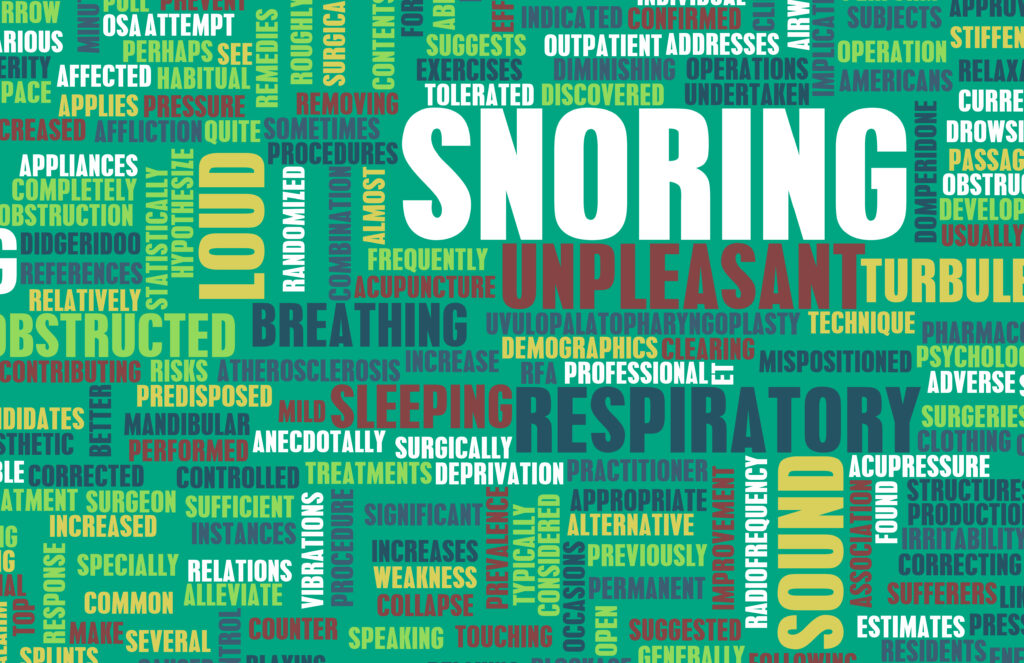Introduction
Have you ever wondered why some people snore while they sleep? Snoring is a common phenomenon that affects many individuals around the world. While it may seem like a harmless noise, snoring can actually be an indication of an underlying health issue. In this article, we will explore seven surprising facts about snoring that you may have never known before.

Table of Contents
- Understanding Snoring
- The Causes of Snoring
- Snoring and Sleep Apnea
- The Impact of Snoring on Relationships
- Snoring and Health Risks
- Snoring Remedies and Treatments
- Tips for Preventing Snoring
- Conclusion
- FAQs
1. Understanding Snoring
Snoring is the noisy breathing sound that occurs during sleep. It happens when the flow of air through the mouth and nose is partially blocked, resulting in vibration of the tissues in the airways. Snoring can vary in sound and intensity, from soft and gentle snores to loud and disruptive noises.
2. The Causes of Snoring
Snoring can be caused by various factors, including:
- Obesity: Excess weight can lead to the accumulation of fatty tissues around the throat, narrowing the airways and causing snoring.
- Age: As we age, the muscles in the throat and tongue may become weaker, increasing the likelihood of snoring.
- Alcohol and Sedatives: Consuming alcohol or taking sedatives before sleep can relax the throat muscles, leading to snoring.
- Nasal Problems: Chronic nasal congestion, deviated septum, or sinus issues can contribute to snoring.
3. Snoring and Sleep Apnea
Snoring is often associated with a sleep disorder called sleep apnea. Sleep apnea is characterized by pauses in breathing during sleep, resulting in disrupted sleep patterns. People with sleep apnea often snore loudly and frequently wake up gasping for air. If left untreated, sleep apnea can have serious health consequences.
4. The Impact of Snoring on Relationships
Snoring can have a significant impact on relationships, particularly for those who share a bed. The loud noise can disrupt the sleep of the snorer’s partner, leading to fatigue, irritability, and even resentment. Sleep deprivation caused by snoring can strain relationships and affect overall well-being.
5. Snoring and Health Risks
Snoring may be more than just a nuisance; it can also be a sign of potential health risks. Research has shown that chronic snoring may be linked to an increased risk of:
- High blood pressure
- Heart disease
- Stroke
- Diabetes
- Depression
It is important to address snoring and identify any underlying health issues to mitigate these risks.
6. Snoring Remedies and Treatments
There are several remedies and treatments available to alleviate snoring. These include:
- Lifestyle changes: Losing weight, avoiding alcohol and sedatives before bed, and sleeping on your side can help reduce snoring.
- Nasal strips and sprays: These can help open up the nasal passages and improve airflow.
- Oral devices: Custom-fitted dental devices can reposition the jaw and tongue to prevent snoring.
- Continuous Positive Airway Pressure (CPAP) therapy: This involves wearing a mask that delivers pressurized air to keep the airways open during sleep.
7. Tips for Preventing Snoring
Here are some tips to prevent snoring and promote better sleep:
- Maintain a healthy weight and exercise regularly.
- Sleep on your side instead of your back.
- Keep your bedroom clean and allergen-free.
- Use a humidifier to keep the air moist.
- Avoid consuming alcohol and heavy meals before bedtime.
Conclusion
Snoring is not just an annoying noise; it can be a symptom of underlying health issues and can strain relationships. Understanding the causes, health risks, and available remedies is crucial in addressing snoring effectively. By implementing lifestyle changes, seeking appropriate treatments, and maintaining good sleep hygiene, you can reduce snoring and improve overall sleep quality.
FAQs
Q1: Is snoring only a problem for older individuals? Snoring can affect people of all ages, although it becomes more common as we age due to natural muscle relaxation in the throat.
Q2: Can snoring be hereditary? Yes, snoring can have a hereditary component. If your parents or close relatives snore, you may have a higher likelihood of snoring as well.
Q3: Are there any natural remedies for snoring? Yes, certain lifestyle changes like losing weight, exercising regularly, and using nasal strips can help reduce snoring without the need for medical interventions.
Q4: Is snoring always a sign of sleep apnea? While snoring can be a symptom of sleep apnea, not all snorers have this condition. It is important to consult a healthcare professional for an accurate diagnosis.
Q5: Can snoring be cured completely? The effectiveness of snoring treatments varies from person to person. While some individuals may find complete relief, others may experience partial improvement. Working with a healthcare professional can help determine the most suitable treatment options for your specific situation.